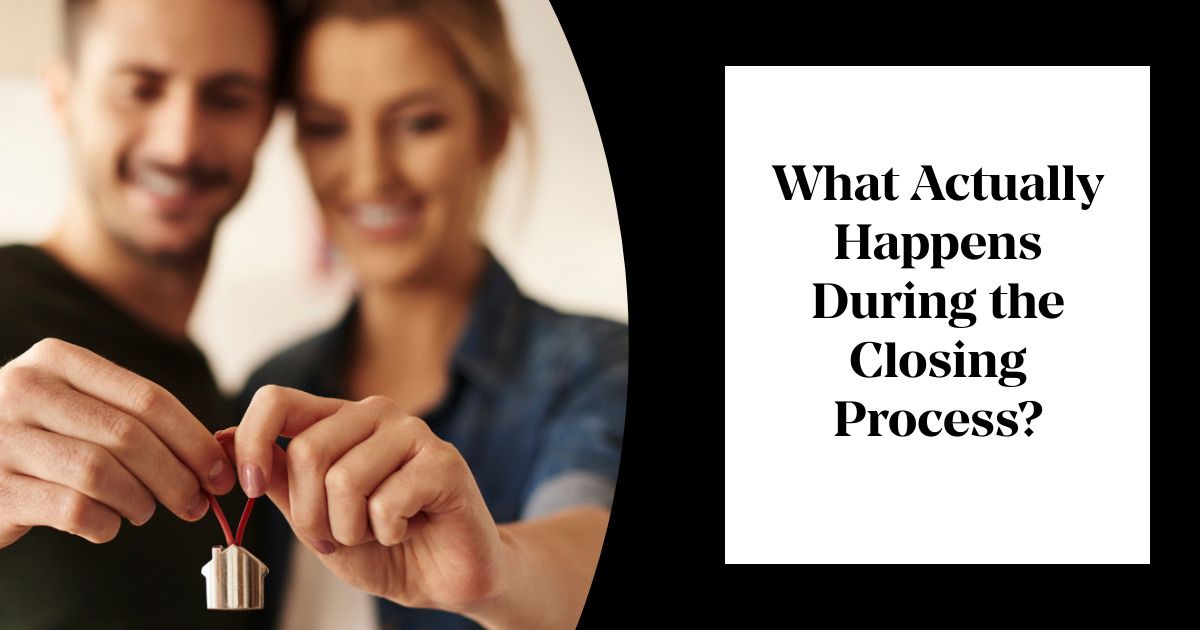
The closing process is the final step in purchasing a home or property, but for many buyers, it can seem like a mysterious experience. In reality, closing is a well-organized series of events that, when understood, can help alleviate stress and ensure a smooth transition to homeownership. Let's demystify the closing process and explore what actually happens during this crucial phase of your real estate journey.
Pre-Closing Preparations
Before the official "closing day", several important steps take place:
- Final walk-through: Buyers typically conduct a final inspection of the property with their agent to ensure it's in the agreed-upon condition.
- Document review: Both parties and to their respective attorney review numerous documents, including the closing statement, deed/conveyance, and mortgage papers. It’s possible to pre-sign some documents at this stage, which can be advantageous to speed up closing day.
- Funds preparation: Buyers arrange for the transfer of the closing costs to their attorney by either a cashier’s check or an electronic transfer.
The Waiting Game
The closing process—from “contract signed” to “key handover”— can take up to 3-4 months. Most of the time you’ll spend waiting depends on obtaining the buyer financing from your bank because that’s the part that takes the longest to come through. Once that’s ready and approved, you're attorney will start moving to closing day.
Closing Day
On the day of closing, several events unfold:
Meeting of Parties
The buyers, their real estate agent, and the buyers' attorney may gather at the attorney's office. It is very rare in the Bahamas for buyers and sellers to close a land sale and purchase together.
Document Signing
This is the heart of the closing process. Each party will sign a multitude of documents, including:
- The closing statement (detailing all financial transactions)
- Mortgage documents
- Property deed or conveyance
- Affidavits and declarations
Fund Transfer
The buyer's attorney provides the seller's attorney with a cashier's check or initiates a transfer for the remaining balance of the purchase price and closing costs. Based on agreement between the two attorneys in the closing statement, each may distribute some of these funds - paying off the seller's existing mortgage, real estate commissions, and other fees.
Key Handover
Once the signed conveyance has been delivered to the buyers' attorney and the seller's attorney has received the balance of the purchase price, the seller hands over the keys to the property, along with any other relevant items like garage door openers or security codes.
Post-Closing Activities
After the "closing" a few final steps occur:
- Move in: You’re ready to move into your new home. Congratulations!
- Transfer Tax: The transfer tax or VAT, must first be paid to Government. The Stamp Tax on the mortgage must also be paid to Government too.
- Document recording: The conveyance and mortgage documents are then given to the Registry to be recorded on public record.
- Declaration of Real Property Tax: The buyers' attorney submits the Declaration of Real Property Tax to the Department of Inland Revenue to register the change in ownership for annual property tax purposes.
In conclusion...
While the closing process involves numerous steps and can seem overwhelming, understanding what to expect can help you navigate this final stage of your home purchase with confidence. Remember, your Morley agent is there to guide you through each step, ensuring a successful and exciting transition into your new home.
Buying or selling and want some help from an expert? Get in touch.
Looking for an expert guide?
Let's work together. We'll make every step easy and as stress-free as possible.


.jpg)

.png)

